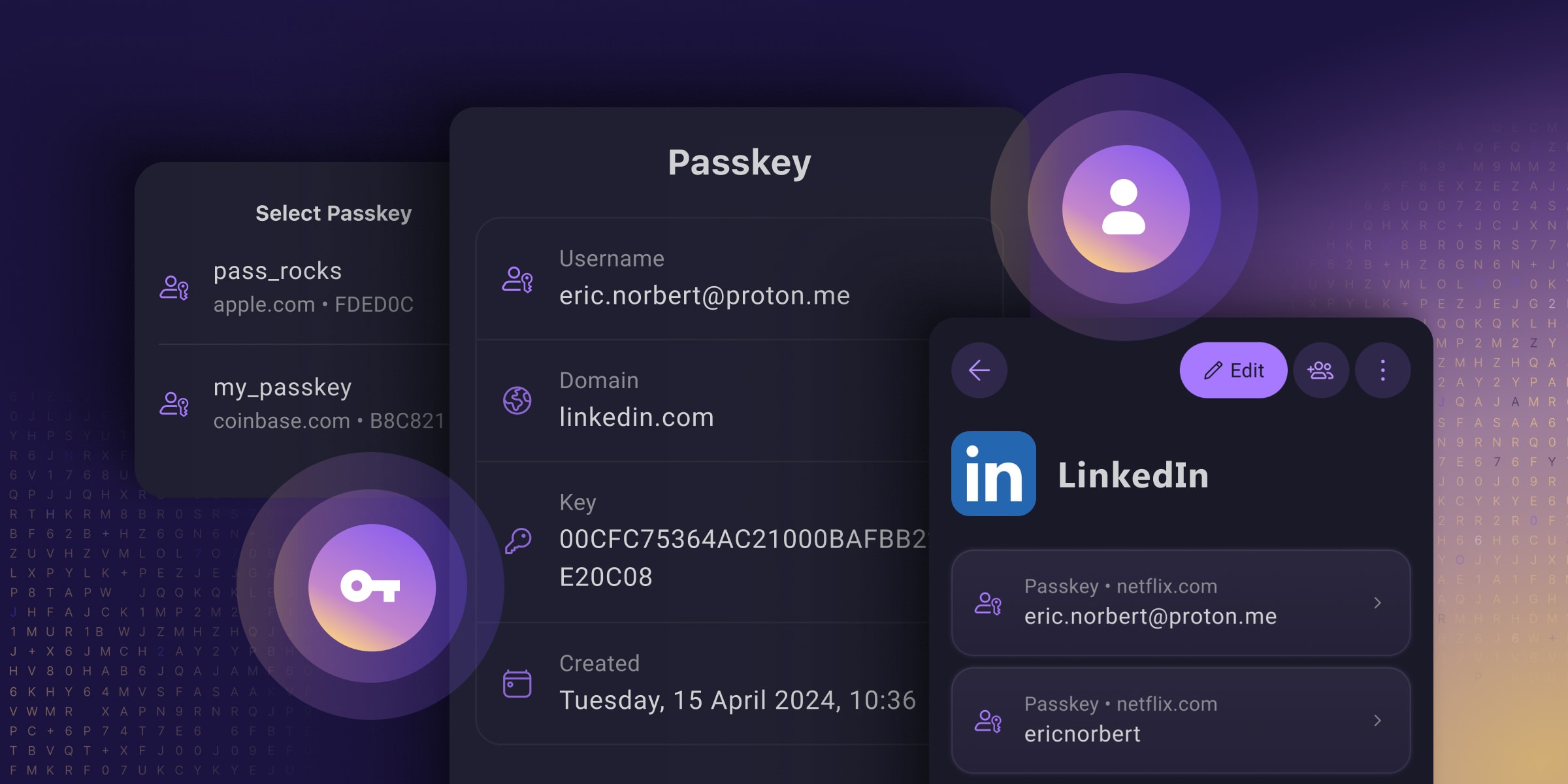- cross-posted to:
- technologie@jlai.lu
- cross-posted to:
- technologie@jlai.lu
Passkeys are an easy and secure alternative to traditional passwords that can help prevent phishing attacks and make your online experience smoother and safer.
Unfortunately, Big Tech’s rollout of this technology prioritized using passkeys to lock people into their walled gardens over providing universal security for everyone (you have to use their platform, which often does not work across all platforms). And many password managers only support passkeys on specific platforms or provide them with paid plans, meaning you only get to reap passkeys’ security benefits if you can afford them.
They’ve reimagined passkeys, helping them reach their full potential as free, universal, and open-source tech. They have made online privacy and security accessible to everyone, regardless of what device you use or your ability to pay.
I’m still a paying customer of Bitwarden as Proton Pass was up to now still not doing everything, but this may make me re-evaluate using Proton Pass as I’m also a paying customer of Proton Pass. It certainly looks like Proton Pass is advancing at quite a pace, and Proton has already built up a good reputation for private e-mail and an excellent VPN client.
Proton is also the ONLY passkey provider that I’ve seen allowing you to store, share, and export passkeys just like you can with passwords!
See https://proton.me/blog/proton-pass-passkeys
#technology #passkeys #security #ProtonPass #opensource



But they don’t. I think this is where your confusion is. I think you’re worrying over a problem that doesn’t exist.
It does not.
If you’re scared of losing both your device and your recovery codes for TOTP, to the point that you store those in your password manager, and you’re happy with that solution, then just store your passkeys in your password manager. Thats literally what this post is about.
And even if you store your passkeys on device for an iPhone for example, they’re stored in your iCloud Keychain which can be recovered if you lose your device. Theres also just nothing about Passkeys that prevent a service from offering an account recovery service.
If you’re already using 2FA, then Passkeys do not pose any additional risk to being “locked out” of your accounts. They actually have less risk usually.